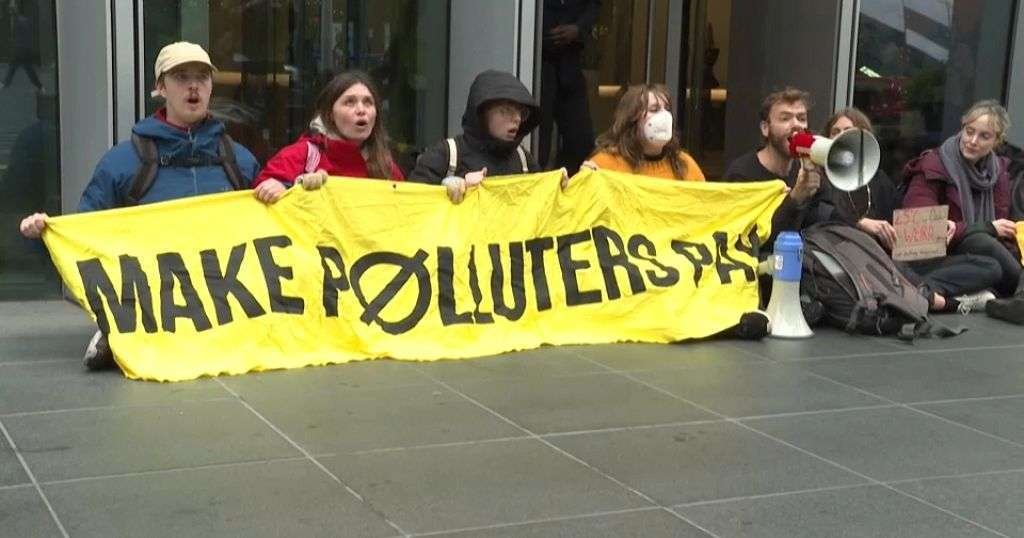Kampala, Uganda – (African Boulevard News) – Climate protesters took to the streets of London on Wednesday, rallying outside the UK headquarters of French energy company TotalEnergies to voice their opposition against a controversial oil project in Uganda and Tanzania. The demonstration aimed to raise awareness about the detrimental environmental impacts of the proposed East African pipeline project.
The project, which is a joint venture between TotalEnergies, the China National Offshore Oil Corporation (CNOOC), and the Uganda National Oil Company, seeks to transport crude oil from Uganda’s Albertine region to the Tanzanian port of Tanga for export. It is estimated that the pipeline will cover a distance of approximately 1,445 kilometers, cutting through areas of rich biodiversity, including national parks and wildlife reserves.
Environmental activists argue that the pipeline poses a significant threat to the fragile ecosystems of both Uganda and Tanzania. They fear that construction activities, such as deforestation and habitat destruction, will disrupt wildlife migration routes and lead to the permanent loss of crucial habitats for endangered species.
“The East African pipeline project represents a blatant disregard for the environment and the future well-being of our planet,” said Jane Stevens, a spokesperson for the climate advocacy group Green Earth. “We cannot continue to prioritize short-term economic gains over the long-term sustainability of our ecosystems.”
In addition to the environmental concerns, protesters also raised issues related to climate change and the project’s contribution to greenhouse gas emissions. The extraction and burning of fossil fuels, such as oil, significantly contribute to global warming and climate change.
“We are in a critical moment for the future of our planet, and it is unacceptable to invest in fossil fuel infrastructure projects like the East African pipeline,” remarked Dr. David White, a climate scientist at the University of Oxford. “We need to transition to clean and renewable energy sources to mitigate the impacts of climate change.”
The protest in London echoed similar demonstrations that have taken place in Uganda and Tanzania, where local communities have voiced concerns about land rights, displacement, and the potential negative social and economic impacts of the pipeline project.
While TotalEnergies has committed to minimizing the project’s environmental impact, pledging to adhere to international standards and engage in environmental and social impact assessments, critics argue that the risks are too great to justify its continuation.
As the debate around the East African pipeline project continues, it remains to be seen how the concerns raised by climate protesters and environmental activists will be addressed. The outcome of this project will undoubtedly have far-reaching implications not only for the affected regions but also for the global fight against climate change.

